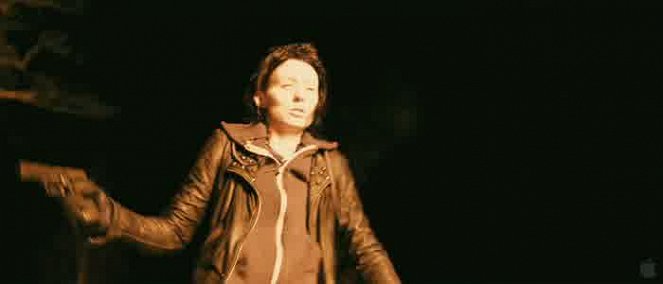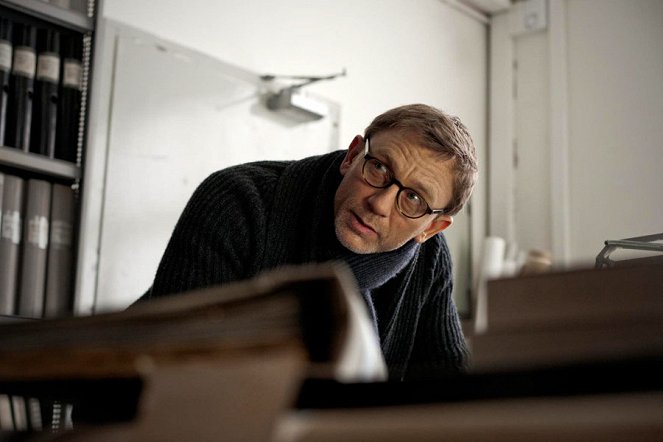Directed by:
David FincherScreenplay:
Steven ZaillianCinematography:
Jeff CronenwethCast:
Daniel Craig, Rooney Mara, Christopher Plummer, Stellan Skarsgård, Steven Berkoff, Robin Wright, Yorick van Wageningen, Joely Richardson, Geraldine James (more)VOD (1)
Plots(1)
Forty years ago, Harriet Vanger disappeared from a family gathering on the island owned and inhabited by the powerful Vanger clan. Her body was never found, yet her uncle is convinced it was murder and that the killer is a member of his own tightly knit but dysfunctional family. He employs disgraced financial journalist Mikael Blomkvist and the tattooed, ruthless computer hacker Lisbeth Salander to investigate. When the pair link Harriet’s disappearance to a number of grotesque murders from almost forty years ago, they begin to unravel a dark and appalling family history. But the Vanger’s are a secretive clan, and Blomkvist and Salander are about to find out just how far they are prepared to go to protect themselves. (official distributor synopsis)
(more)Videos (7)
Reviews (13)
David Fincher is one of the best directors alive and it’s not surprising that he’s made an excellent film. The differences between the American and Swedish adaptations are enough to invalidate the argument of a pointless remake, but I’m still unable to convince myself that I should be satisfied with this new version, I’m not, even though the quality is clear. In short, watching a whodunit when you know who the killer is, is as much fun as going to the sea to watch dolphins, even though you know that dolphins don’t live in that sea. You can enjoy the fresh sea breeze, work on a tan, have a cold alcoholic beverage… but you still know that you won’t see any dolphins.
()
Remember the likable girl who dumped Mark Zuckerberg at the beginning of The Social Network? Try to imagine her with a lot of piercings, a mohawk and t-shirt emblazoned with FUCK YOU YOU FUCKING FUCKER on her thin, pale body. Love her or hate her, she doesn’t know how to be any other way. Lisbeth Salander. Though the film respects the book’s dual (in later parts, multiple) narrative perspective, it’s hard not to get the impression that Fincher is more fascinated by the androgynous hacker than by the reporter obsessed with finding out the truth. The filmmaker, who has always gravitated toward anarchy, as is evident in the violation of genre conventions in his films, has previously expressed a weakness for anti-social protagonists who aim to tear down the system. Actually, “weakness” probably isn’t a very appropriate term, as it can be associated with compassion, understanding and emotional kinship – none of which Fincher shows towards his characters. He does not offer them any kind of protection, which, with respect to the genre and the nature of the crimes committed, evokes an intense fear that practically anything can happen to the protagonists. This is true even if you have read the book and/or seen the Swedish version and you know what happens and when. I wouldn’t call the “care about the characters if you want; the information is more important to me” approach heartless; it’s just maximally focused on the issue being observed and reminiscent of Lisbeth’s thinking based on the analysis of consequences. Every piece of information presented will be put to use sooner or later. Every character and every action serves the narrative. I found the most cold-blooded example of the pragmatic understanding of a human being as a bearer of useful information to be Mikael’s meeting with his daughter, which doesn’t serve to inform us about the protagonist’s personal life, but only to further the investigation. The indifference to people’s emotions doesn’t come only from the director’s “mechanical” perfectionism – it is one of the film’s primary themes. None of the presented families is functional (Mikael is divorced, Lisbeth tried to burn her father); in the biggest family, money replaced emotions. Affection is expressed through sex. The crushing of all certainties continues with the discrediting of the system that made Lisbeth a legally insane psychopath and is not effective even in investigating crimes that can be proven only at the cost of committing other crimes. On top of that, utter hopelessness is ensured by the fatiguing outdoor cold, in which, however, it is less probable that some lunatic will inflict serious internal injuries than in the outwardly safe heated homes. Thanks also to the edgy music, spilling over into and out of the noise of the setting and thus always “present”, I had an unpleasant feeling not only during the most brutal scenes, but from start to finish. I consider making a film this disturbing based on a bestselling novel (so it is basically a so-called pre-sold product) and within a system built on feel-good movies to be an act almost as subversive as splicing frames of bare male genitalia into a children's film. 85%
()
(less)
(more)
To make an accurate comparison of both the European and North American versions would mean watching both films at once or shortly after each other. I saw the initial adaptation almost two years ago, so I dare not make a categorical conclusion. Nevertheless, the comparison of both versions and their quality is the most interesting aspect of the whole matter. There is a significant difference between European and American blockbuster films. With the overseas version, it is evident that we are operating in a completely different budget category, so the opening credits nail you to your seats with an audiovisual onslaught when you see the impressive transformations of the main characters' bodies in a sea of liquid latex. You appreciate the top-notch camera work and excellent music accompaniment. Whether it was in exteriors or interiors, no expense was spared. The main male role was, presumably, taken on by one of the highest-paid actors of today, who filled the gap between shooting Bond movies. The whole film was overseen by one of the most acclaimed directors of the past two decades. Instead of unknown European actors, you see internationally known faces of Hollywood stars. A film has been created that will likely have an impact on the Oscars and will successfully be distributed worldwide. There are no significant differences in the plot between the American and European versions; both films try to faithfully bring the book version to the screen within the possibilities of their respective runtimes. The American version is perhaps somewhat more commercial; it aims for a universal appeal to audiences from different cultures and countries, so it doesn't allow the viewer to dwell too much on the unspoken - it is more literal. In some places, that is to the detriment of the story. I would certainly not reduce the relationship between Blomkvist and Lisbeth to a purely sexual level, quite the opposite. Even with the generous runtime, it is surprising how little the film delves into the psychology of individual actors, showing their motivation, the demons that lead to a series of crimes, and the moves of the individual adversaries. As I mentioned before, the American version is more ambitious, and likely better made, as there is a difference between Fincher and Oplev, but when I think about it, Oplev's version is more likable to me after all. Let's not beat around the bush, the "Millennium Trilogy" became a hit not because of the character of the investigative journalist - there are dozens of those in books - but because of the edgy punk girl with somewhat sociopathic behavior and exceptional hacking skills. And here, in my eyes, Noomi Rapace clearly leads the way. She has a peculiar charisma, she is unfamiliar, so one can easily identify with her as Lisbeth and root for her. Rooney Mara is a capable actress, but the chemistry between her and me as a viewer simply did not work as it should have. She even seemed a bit unsympathetic to me, which made it hard to root for her. I can think of a few other names that I would have preferred to see in that role. In any case, this film is definitely worth a trip to the movie theater, if only for its excellent soundtrack and professional execution. Only a few blockbusters maintain a level that doesn't offend film connoisseurs, but I have to say that, emotionally, the American version somehow missed the mark for me. I don't need to see this film again. Overall impression: 75%.
()
(less)
(more)
If I compare the procedural ritual Zodiac and this sexless genre trap, it's clear that Fincher was doing a studio job. Nordic detectives are not cool. They're really weird. This version was unable to capture this at all. The investigation is secondary here, and what makes it twice as bad given that it’s Fincher - any pathological charge slips away here. The fact that the killer listens to Enya is a weak band-aid. Anal sex in the form in which the film offers it can really outrage only unbroken Catholics, and there were more places where I searched in vain for Fincher's contribution. Personally, I suffered through most of the film - and something tells me that if you don't know the book, some of the things won't make sense (for a detective story, the motivations of the killer and the detective are quite crucial, which are hardly found here).
()
David Fincher's directorial style is beautifully easy to recognize, he imparts it to every one of his films. Brilliantly crafted dialogues, musical score, uncompromising atmosphere. This film could have been made in a number different ways. Essentially, it is a considerably clichéd and well-known story about a serial killer, but in the hands of a master, it becomes a unique cinematic delicacy, where ordinary things are presented in a completely extraordinary and distinctive manner. In the end, it is a seemingly well-behaved and coherent film that is brutally eccentric and demonically precisely shot. I wouldn't expect anything less from Fincher.
()


